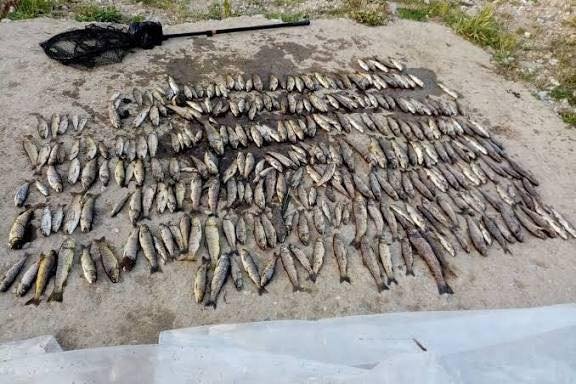An investigation into last month’s mass fish kill in North Cork has concluded that an unidentified “irritant” was the likely cause of the deaths of tens of thousands of fish in the River Blackwater near Mallow.
The inter-agency report, published by Inland Fisheries Ireland (IFI), was unable to determine the exact nature of the pollutant or its source.
However, it found that a “short-term pollution event” was the probable cause of the die-off, which began on 9 August.
According to the findings, the unknown irritant is thought to have entered the river between 5 and 6 August, roughly 72 hours before the first fish mortalities were reported.
The report estimated that up to 32,000 brown trout and salmon were killed. No signs of disease, heavy metals or chemical residues were detected, and no other protected species such as otters, freshwater pearl mussels or birds were affected.
The investigation was commissioned by the Department of Climate, Energy and the Environment on 22 August and carried out by an Inter-Agency Group (IAG) led by IFI. The group also included the Environmental Protection Agency (EPA), Cork County Council, Uisce Éireann, the Marine Institute, the Department of Agriculture, the HSE, the National Parks and Wildlife Service (NPWS) and the Local Authority Waters Programme (LAWPRO).While the Department has said fish populations are expected to recover naturally, anglers have expressed deep concern about long-term damage to the river.
The Mallow Trout Anglers Club described the incident as “a complete wipeout of the fishing stock,” warning that it could take up to ten years for the Blackwater to recover, if recovery is even possible.
Minister of State for Fisheries and the Marine, Timmy Dooley, welcomed the report, saying it underlined the importance of rigorous multi-agency cooperation in such cases.
“When incidents of this severity occur, it is the duty of all State agencies to act decisively and exhaust all avenues in identifying possible causes and contributing factors,” he said.
Although the investigation was unable to pinpoint the source, Minister Dooley stressed that current water quality readings remain normal and that angling activity has resumed on the river.
Separately, the EPA has warned that North Cork Creameries in Kanturk risks losing its licence unless it resolves what the agency described as “very serious matters” concerning wastewater discharges into the River Allow, a tributary of the Blackwater.
While the plant was investigated during the fish kill inquiry, the EPA emphasised that there is no evidence linking the creamery to the Blackwater incident.
Nonetheless, inspectors found that the facility has a history of non-compliance with wastewater licence conditions, including prosecutions, convictions and fines earlier this year. Serious breaches were also detected between June and August, attributed to poor management, lack of expertise, and failure to act on critical monitoring data.
The EPA said these issues remain unresolved and that enforcement action is being pursued “as a matter of priority and urgency.” It warned that offences could result in prosecution either by the agency itself or by the Director of Public Prosecutions.
“The pre-existing issues at North Cork Creameries are very serious matters that need to be addressed to restore compliance and to allow the plant to retain its licence into the future,” the report concluded.











